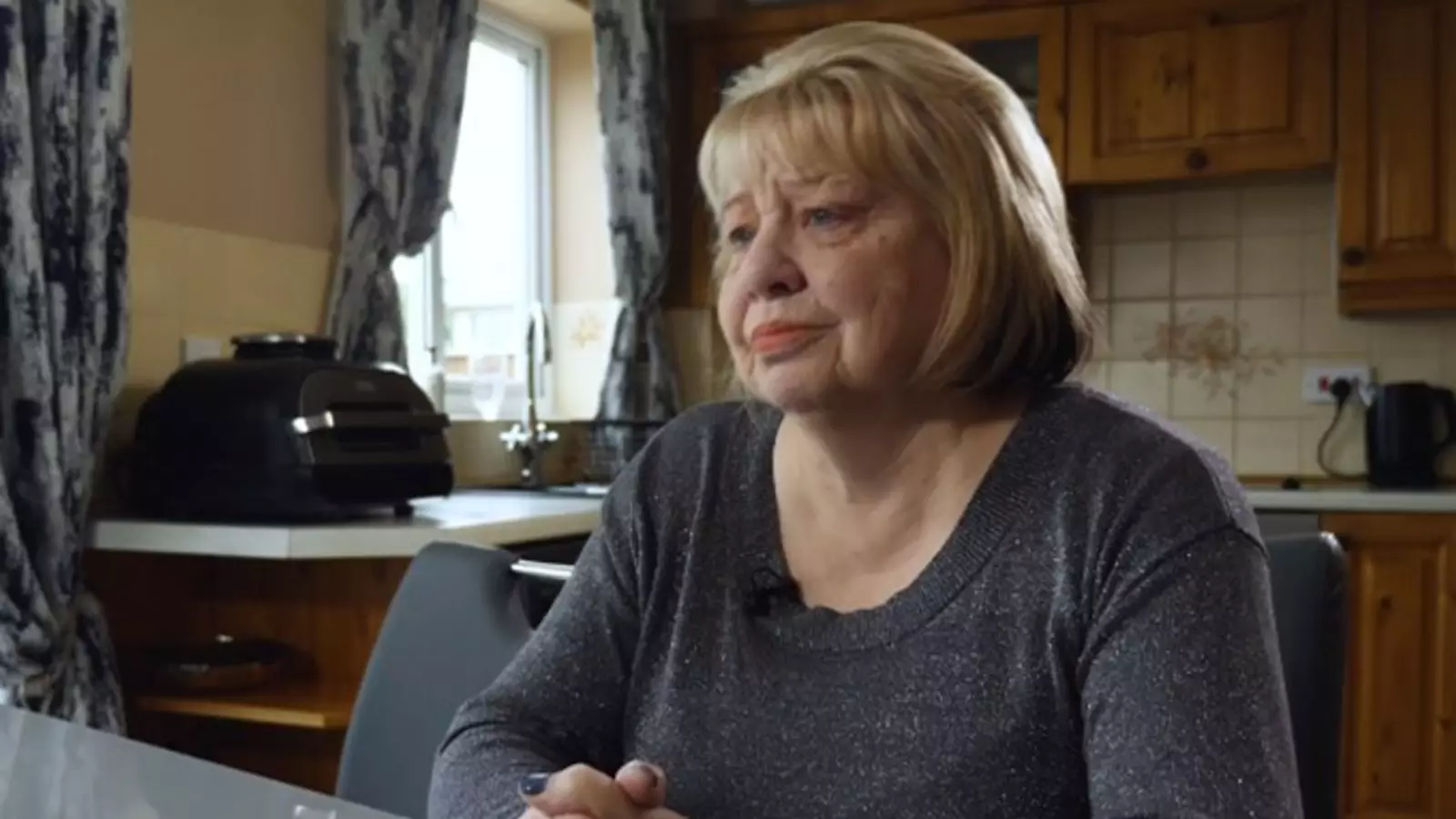The anguish of dealing with a terminal illness within a family can be overwhelming, particularly when the healthcare system seems to fail those in need. The story of Diane Edwards and her late ex-husband, Mick, sheds light on the troubling discrepancies and emotional toll that accompany such medical crises. As Diane speaks about her experience just days after Mick’s passing due to stage 4 bowel cancer, her narrative is tinged with heartbreak, exhaustion, and frustration, highlighting the urgent need for effective reforms in the healthcare system.
Diane’s reflections convey the harrowing reality of being a caregiver for someone suffering from a debilitating illness. She recounts the sequence of events that led to both physical deterioration and emotional burden during the months preceding Mick’s death. Marked by sleepless nights and relentless caregiving, Diane describes her helplessness when witnessing the once-vibrant Mick transform into a frail version of himself. The graphic imagery of caring for him during moments of crisis—blood pouring from his body—brings attention to how devastating such an experience can be.
In many cases, caregivers face overwhelming responsibilities without sufficient support. Diane’s experience is not unique; many individuals in similar situations find themselves without the necessary resources or training. The reliance on untrained caretakers exacerbates the situation. Diane expressed frustration at the inadequacy of care professionals, emphasizing the dire lack of medical training among the support staff responsible for tending to her husband. This absence of crucial knowledge leaves patients, like Mick, vulnerable and limits their quality of life.
Compounding the emotional stress of caregiving, Diane highlights the failings within the healthcare assessment process. After a brief hospital stay, Mick returned home, but an online assessment led to a troubling conclusion: he required social care rather than the palliative support aligned with his condition. This pivotal mismatch raises red flags about the validity and effectiveness of remote assessments in cases involving seriously ill patients.
Diane painfully recalls the moment they learned that his funding for care was no longer available, forcing her to confront the reality of potentially losing Mick’s home to cover medical expenses. It is a heartbreaking dichotomy: while Diane was trying to provide comfort for her husband in his declining state, they faced the possibility of financial ruin. The emotional impact on both of them was significant, with Mick’s despair manifesting in a refusal to eat.
Such experiences indicate serious flaws in the assessment process regulated by organizations like NHS Shropshire, Telford and Wrekin. While the entity may assert that assessments adhere to established frameworks, discrepancies remain in accessibility and outcomes of care across the board. The process often appears as a ‘postcode lottery,’ where patients in different regions receive vastly different levels of support and funding. Some assessments may offer necessary support, while others fall short due to low eligibility rates, as evidenced by research from the Nuffield Trust.
Diane’s heartbreaking experience serves as a poignant reminder of the systemic failures that need addressing. The disjointed nature of healthcare services creates an environment where patients and their families feel abandoned during critical times. The current system seems ill-equipped to deal with the complexities faced by terminally ill patients and their caregivers, who often navigate through a maze of assessments, funding struggles, and healthcare bureaucracy.
Urgent reform is essential—not just within the realm of Continuing Healthcare (CHC), but across the entire healthcare landscape. Experts like Rachel Hutchings of the Nuffield Trust have identified the pressing challenges that warrant immediate attention. She points out that more should be done to address the urgent crisis facing social care and to promote understanding of existing support avenues.
Moreover, discussions about options like assisted dying remain contentious yet important. Diane poignantly mentions that Mick might have chosen assisted dying had it been available, highlighting a dimension of autonomy that severely ill individuals may yearn for but often do not receive.
The heart-wrenching story of Diane and Mick Edwards serves as an indictment of the current healthcare system. It reflects broader issues that plague individuals during their most vulnerable moments. As the systemic failings become increasingly visible, the onus is on healthcare providers and policymakers to prioritize patient-centered care, improve assessment processes, and ensure comprehensive support for both patients and caregivers alike. Ultimately, the hope is that no one else will have to endure the same pain and frustration witnessed by Diane during her husband’s battle with cancer. The time for compassionate reform is now.

Leave a Reply